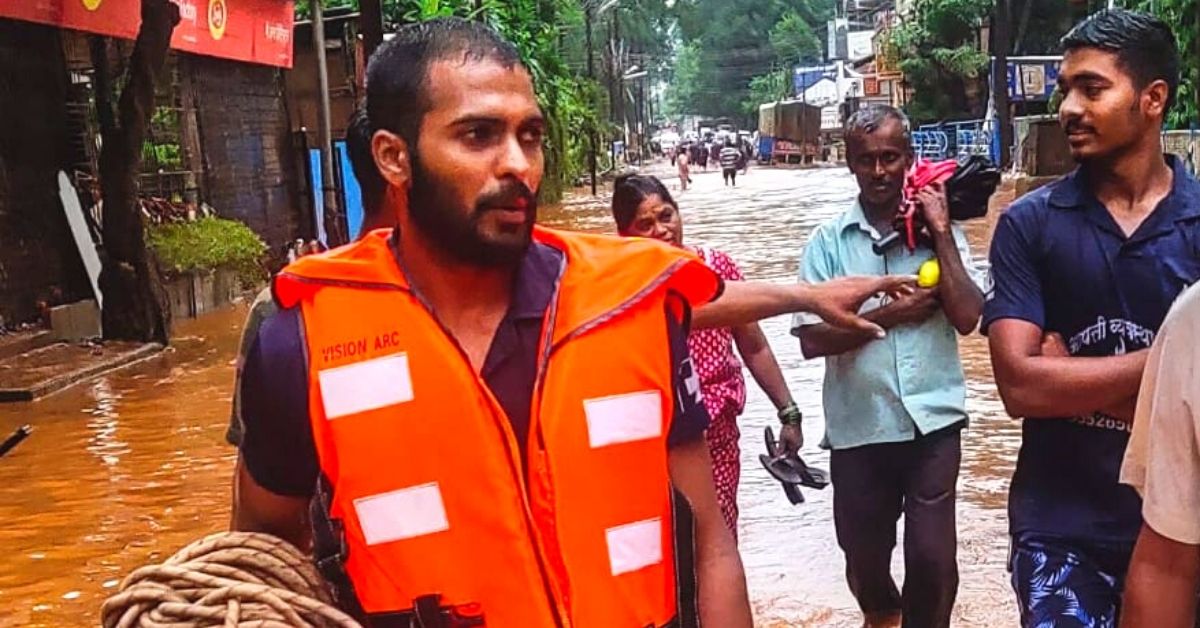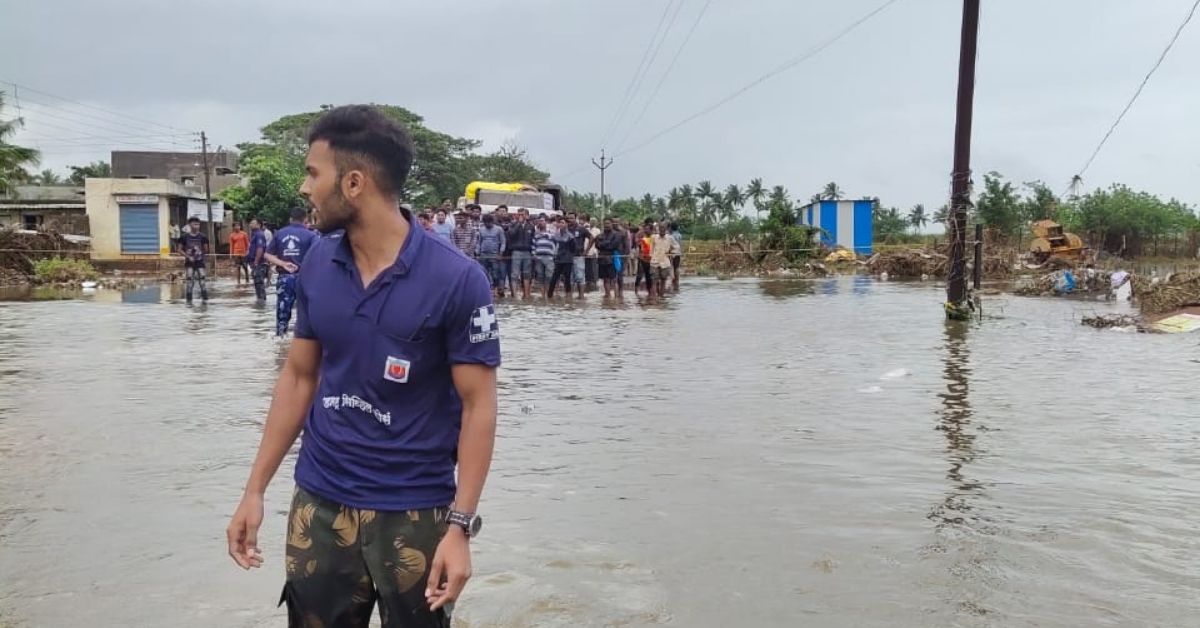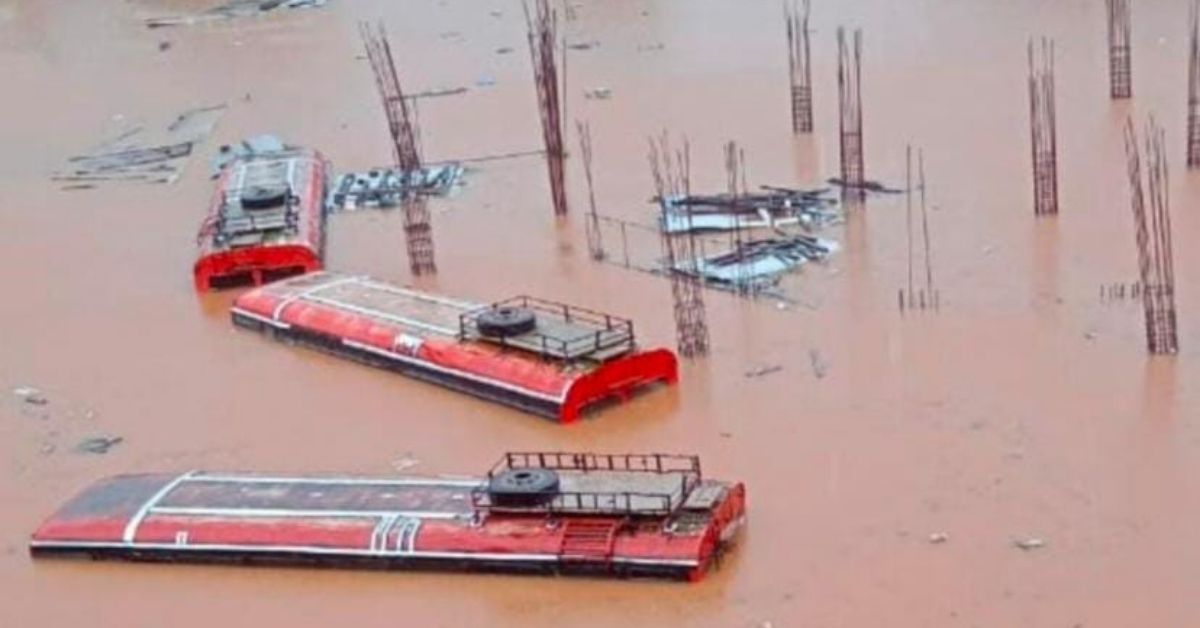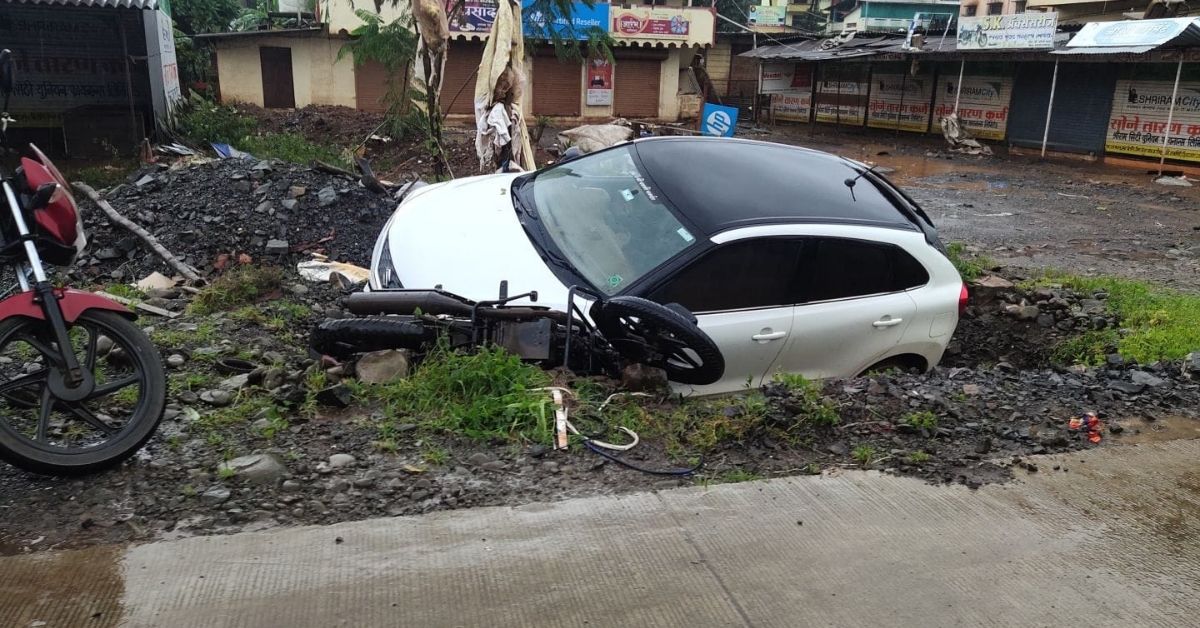Just 25, This Brave Soul Has Rescued 300+ People From Devastating Maharashtra Floods
An IT employee by profession, Pune-based Harsh Gawali is a trained rescue operator during natural disasters. He shares his rescue missions during the Maharashtra floods in 2021

Harsh Gawali broke down on the devastating night of 30 July as he safely deported a new mother to a Chiplun hospital in Maharashtra. The woman had just delivered a baby on the terrace so Harsh had to carry her for nearly 200 metres in neck-deep water, amid power cuts and heavy rainfall.
Though he saved her life, he felt helpless for being unable to save the newborn.
The incident shook him completely but further strengthened his passion for rescue operations during natural disasters.
Harsh, a trained cadet of Maharashtra Civil force, always wanted to join the Indian Army but couldn’t due to personal reasons. So the 25-year-old joined the rescue operation missions in 2019 as a volunteer to save lives.
He works in an IT company and offers his services every time the need arises. So far, he has been a part of two major deluges in Maharashtra — Kolhapur (August 2019) and Chiplun. He led the task force in both the operations and saved a total of 300 lives with his team.
The Better India speaks to Harsh, who is also a wrestler and a model, about the dangers of rescue missions, what it means to leave the comforts of an air-conditioned office and risk his life to have bitter-sweet experiences.
‘We Prepare for the Worst’

Harsh’s tryst with rescues started with animals while growing up in Pune’s cantonment area.
“I used to look after a lot of stray and abandoned dogs, cats and snakes. That motivated me to help the injured and troubled beings and I got serious about human rescue operations. Plus, I grew up around military officers who were always fit, athletic and disciplined. They inspired me to remain fit and healthy, a mandatory criteria to join the rescue operation teams,” Harsh tells The Better India.
Harsh underwent training for nearly two months from the civil force, a non-profit organisation that frequently works with the National Disaster Relief Force (NDRF).
Here, he learnt everything, from rescue techniques, CPR, first aid, arranging equipment in the absence of power to safely rescuing people from drowning and removing them from under the rubble.
“Training is a combination of both mental and physical preparedness, as on-ground reality can be unpredictable. Last minute decision making is crucial. We put ourselves at risk every time we enter the disaster site. While being prepared for the worst, we have to draft a rescue plan for civilians first and then ourselves,” says Harsh.
During the Kolhapur floods, few senior citizens ran back to their houses after being rescued to fetch important documents, “People were traumatised to see their belongings flowing away and they couldn’t process what was happening. When panic sets in, it becomes extremely hard to control people. It takes a lot of talking to calm them down,” he says.

Survival also depends on alertness, not just of the mind but also of the body. During floods, the operators are advised against wearing boots to avoid contracting skin diseases. This makes the task more difficult as there is no way to know what is under the water.
During the Chiplun floods, Harsh and his team were surrounded by a mother crocodile and her four babies. It was a civilian watching from the terrace who alerted him. Harsh miraculously rescued people from the area and then himself, all the while tackling the deadly animal.
“My legs were numb from being underwater for hours so I wouldn’t know if a crocodile was near me. I relied on the water movements and that stranger,” he adds.
Likewise, in the Kolhapur floods, Harsh’s teammate was severely injured due to broken glass bottles and hospital syringes as he was barefoot.
Harsh says maintaining mental stability in such situations is a must. He saw disturbing scenes like floating dead bodies of humans and animals during the two floods.

“Seeing visuals of cars flowing in water thrown like paper boats, houses crumbling down and people crying incessantly can paralyse you with shock. But you cannot afford to waste even a second with so many lives at stake,” says Harsh.
Among all his bittersweet experiences, the best ones have been the ones with kindness and humility. He says the worst situations bring out the best of humanity.
He remembers a family in Chiplun who cried and couldn’t thank him enough for sharing the little food Harsh had on him. “The family had been starving for hours when we rescued them. Arranging water and food is a basic courtesy but I have never seen anyone be so grateful. There have also been times when strangers have cooked for us. After working for nearly 9-10 hours, such gestures maintain our morales” he says.
In both these major emergencies, Harsh was in the office when he got called. He frequently gets calls from people to rescue animals in Pune while he is in the middle of his work. By now, he says that he has been able to strike a balance between his passion and profession.
(Edited by Yoshita Rao)
If you found our stories insightful, informative, or even just enjoyable, we invite you to consider making a voluntary payment to support the work we do at The Better India. Your contribution helps us continue producing quality content that educates, inspires, and drives positive change.
Choose one of the payment options below for your contribution-
By paying for the stories you value, you directly contribute to sustaining our efforts focused on making a difference in the world. Together, let’s ensure that impactful stories continue to be told and shared, enriching lives and communities alike.
Thank you for your support. Here are some frequently asked questions you might find helpful to know why you are contributing?


This story made me
-
97
-
121
-
89
-
167











